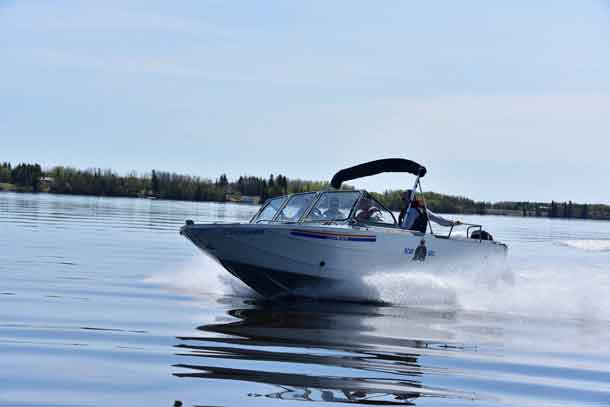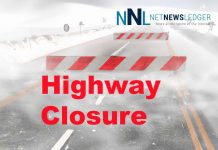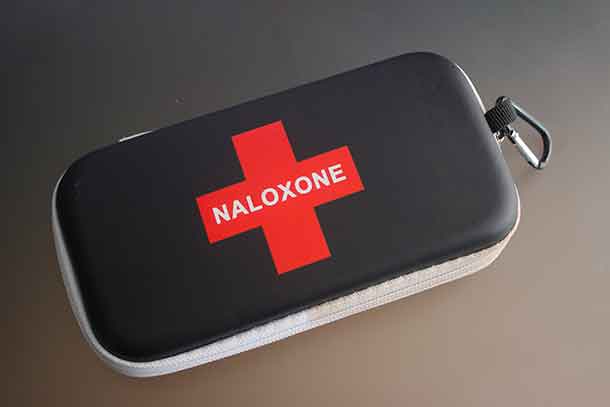GOULAIS TOWNSHIP, ON NEWS – On August 6, 2017 at approximately 7:30PM EDT Sault Ste. Marie Ontario Provincial Police (OPP) with the assistance of the Batchewana Police Service, Goulais Fire and Rescue and Emergency Medical Services (EMS) responded to a 911 marine distress call from Horseshoe Bay.
The caller was a 13 year old female who was floating in a paddleboat with her 12 year old female friend. The paddleboat became disabled and they could not paddle anymore. They were towing an inflatable rubber dinghy that was carrying two pet dogs.
The paddleboat and dinghy floated out into the open water of Lake Superior where they were stranded for four hours unable to make it to shore. Cell coverage was intermittent at the time.
By the time emergency services arrived on scene, the current had floated them back to the shoreline where they were assisted by EMS. Both young females were treated for mild hypothermia at the scene. They were wearing lifejackets.
LITTLE LAKE GEORGE, (GARDEN RIVER FIRST NATION, ON) – At approximately 9:50PM EDT on August 6, 2017 Sault Ste. Marie Ontario Provincial Police (OPP) with the assistance of the Anishinabek Police Service (APS), and the Garden River Fire Department responded to a call for a disabled fishing boat on Little Lake George.
A 17 foot fishing boat with four boaters on board became disabled and the current was floating them away. One of the boaters used a cell phone to call a family member who in turn called for assistance.
The OPP Marine Vessel was launched and attended the area. Upon the OPP vessels arrival the fishing boat had floated to the shoreline of Little Lake George. All boaters were wearing life jackets and were in good health.
OPP would like to remind boaters of the following marine safety tips:
· Be Wary of the Weather
Boaters should check the weather before heading out on the water and know how to interpret weather changes while on the water. Sudden changes in weather can occur without warning in many parts of the province. Sudden changes in wind can be particularly dangerous since this can quickly create high waves.
Many small pleasure craft are not designed to handle any great amount of wind and waves and can be easily swamped or capsized. When the forecast is poor, plan to stay ashore.
Cold water is also a factor all boaters should understand and prepare for, but little do. Death from sudden cold water immersion happens very, very quickly. When suddenly immersed, the first reaction is a sudden uncontrollable gasp, followed by 1 to 3 minutes of hyperventilation which will lead to the rapid onset of severe hypothermia.
The colder the water, the higher the death rates. Weather changes and water conditions never remain constant.
· Know Your Boat
Familiarize yourself with the boat you are operating and be prepared. Most calls for assistance are due to mechanical breakdowns. When operating a non-motorized vessel, have safety equipment onboard such as a sound signalling device, flashlight, floating rope, and bailing bucket.
· Wear Protection
If you don’t wear it, it won’t work. OPP data continues to show that eight out of ten victims who die in fatal boating incidents are not wearing a Personal Floatation Device (PFD). Many boaters who drown believe they are good swimmers, so they think having a PFD on board and within easy reach is good enough. But, most drownings happen unexpectedly when small boats capsize or someone falls overboard and can’t grab that PFD.
Make sure you understand the operating instructions of your PFD and when choosing a lifejacket choose one that is suitable for the activity. Check the label to make sure that it is Canadian approved and finally, make sure it fits snugly. The Canadian Red Cross and Transport Canada have excellent information about PFDs and lifejackets on their websites.
· Don’t Drink and Boat
Drinking while boating is just as dangerous as drinking and driving and the very same laws apply. If you are caught operating a motorized or non-motorized vessel while impaired, you will also lose your ability to operate your motor vehicle. Drinking alcohol on boats is only allowed when the boat has sleeping, cooking and washroom facilities and is anchored or docked.






